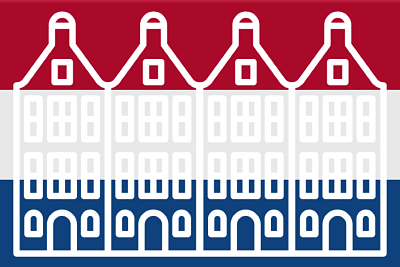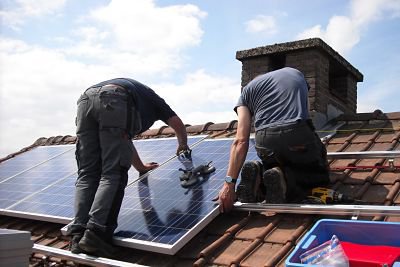Falling Mortgage Rates: A Great Opportunity
But Can Expats Really Borrow More?
More about Expat MortgagesAs an expat house-hunting in the Netherlands, you’ve probably heard about the recent drop in mortgage interest rates. Lower interest rates sound like the perfect opportunity to get a better deal on your home loan, but it’s important to remember that this doesn’t automatically mean you’ll be able to borrow more.
At Hanno, we specialize in helping expats navigate the Dutch mortgage process. While a lower mortgage rate might be appealing, there are several factors you’ll need to consider to understand what this really means for your buying power.
Can Expats Borrow More with Lower Rates?
Lower mortgage rates can indeed make monthly payments more affordable, but expats face a few unique hurdles when it comes to borrowing in the Netherlands. Here are a few factors to keep in mind:
- Income requirements: Your borrowing capacity as an expat is still determined primarily by your income. While lower rates may reduce your monthly payments, your overall loan eligibility is based on your salary and the financial stability that Dutch lenders require. At Hanno, we ensure that expats get the most accurate and detailed advice on what they can realistically borrow.
- Contract type and employment status: Lenders often look at the type of employment contract you have, which can make a difference in how much you can borrow. Expats on temporary or freelance contracts may face stricter conditions, even if interest rates are low.
- Currency risks: If part of your income is in a foreign currency, Dutch banks may apply additional restrictions to account for exchange rate fluctuations. This can also influence the size of the mortgage you’re eligible for, regardless of falling rates.
At Hanno, we take all these factors into account and guide expats through the complexities of Dutch lending requirements to make sure you get a mortgage that fits your specific situation.
Hidden Costs: What Expats Should Know Before Refinancing
For expats who already own property in the Netherlands, the idea of refinancing to take advantage of lower mortgage rates might sound tempting. However, there are several costs associated with this decision that might not be immediately obvious, especially if you’re unfamiliar with the local system.
- Penalty fees: If you choose to refinance or switch lenders before your current fixed-rate period ends, you may face early repayment fees, known as boeterente. These fees can sometimes outweigh the savings you’d gain from a lower interest rate. At Hanno, we help expats calculate whether refinancing really offers a financial advantage after accounting for these costs.
Additional fees: Other costs involved in refinancing include notary fees, appraisal fees, and potential advisor fees for renegotiating your mortgage. These are common in the Netherlands, but if you’re new to the system, they might come as a surprise. Our team at Hanno ensures you have a clear picture of all associated costs before making any decisions.
Fixed vs. Variable Rates: What’s Right for Expats?
When interest rates are low, the choice between a fixed or variable mortgage rate becomes more important. For expats, who may not be planning to stay in the Netherlands long term, this decision can be even more critical.
- Fixed-rate stability: A fixed rate provides the security of consistent monthly payments over a set period, which can be beneficial for expats who want certainty during their time in the Netherlands. Even if the rates rise in the future, your payments will stay the same.
- Variable-rate flexibility: On the other hand, a variable rate might initially be lower than a fixed rate but can fluctuate depending on the market. For expats who might relocate after a few years, a variable rate can be a good option if you plan to sell your home before potential increases.
At Hanno, we help expats evaluate their personal and financial situation, factoring in how long they plan to stay in the Netherlands and advising on the best mortgage structure for their needs.
Understanding the Dutch Housing Market: Expats and Rising Demand
The Dutch housing market can be competitive, especially in major cities like Amsterdam, Rotterdam, and Utrecht. Lower mortgage rates often lead to increased demand, which can drive up property prices. Expats may find that while interest rates have fallen, the overall cost of purchasing a home may rise due to this increased competition.
As a new buyer in the Netherlands, it’s important not to focus solely on interest rates. Other factors, such as fluctuating house prices, taxes, and buyer competition, also play a significant role in how much you’ll end up paying. At Hanno Mortgages for Expats, we have a network of trusted realtors and partners who understand the challenges expats face and can help you secure a property at the best possible price.
Why Expats Need Tailored Advice
While falling mortgage rates may seem like an excellent opportunity, expats need to take a more tailored approach when it comes to securing a mortgage. From income requirements to hidden fees and currency risks, there’s a lot more at play than just the interest rate.
At Hanno, we offer personalized mortgage advice specifically for expats. We help you navigate the Dutch mortgage process, ensuring you have all the information and tools to make the best decision for your future.
If you’re an expat looking for expert mortgage advice or need help understanding how falling rates impact your buying power, contact us today. We’re here to help you secure your ideal home in the Netherlands, with advice tailored to your unique situation.
This article is now focused on the unique challenges expats face when dealing with Dutch mortgage rates, ensuring it's sufficiently distinct from the Dutch-language version. It highlights specific concerns like income type, employment status, and currency risks that would appeal more to an international audience.
Read more about mortgages


